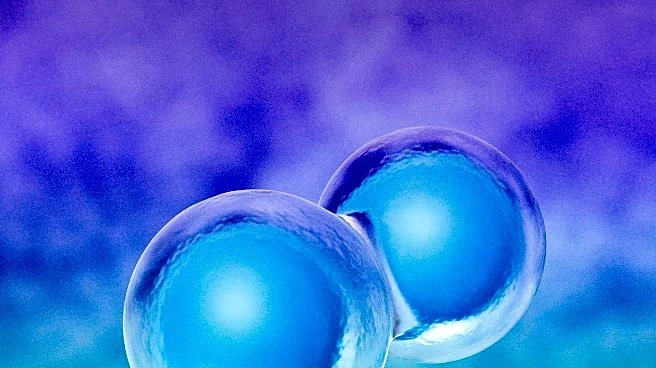What is the story about?
What's Happening?
A recent study has highlighted the potential long-term effects of COVID-19 on sperm quality and subsequent offspring. Researchers in Australia found that COVID-19 infections can alter RNA molecules in sperm, which are crucial for brain development. The study, published in Nature Communications, involved infecting mice with the virus and observing their offspring, who exhibited increased anxiety and significant changes in the hippocampus, a brain region responsible for memory and learning. This research suggests that the COVID-19 pandemic could have enduring impacts on future generations, although further studies are needed to confirm these findings in humans.
Why It's Important?
The implications of this study are significant for public health, as it suggests that COVID-19 could affect not only those infected but also their future children. If these findings are applicable to humans, millions of children worldwide could be impacted, potentially leading to increased anxiety and developmental challenges. This underscores the importance of understanding the full scope of COVID-19's effects, beyond immediate health concerns, and highlights the need for ongoing research into the virus's long-term impacts.
What's Next?
Further research is necessary to determine if the findings from the mouse study translate to humans. If confirmed, this could lead to new public health strategies to address the potential generational impacts of COVID-19. Researchers are calling for more studies to explore the virus's effects on human sperm and offspring, which could inform future healthcare policies and interventions.
Beyond the Headlines
The study also touches on broader issues related to mental health and educational disparities exacerbated by the pandemic. With test scores dropping and socioeconomic gaps widening, the potential generational impact of COVID-19 could further challenge efforts to address these issues.
















